There are a lot of different factors to consider when it comes to buying a property and perhaps the first most important question you're likely to ask yourself is what kind of property is most suitable you? From bedsits to bungalows, terraces to townhouses there are lots of different options to consider, so in this article we look at the pros and cons of the most common types of property in the UK.
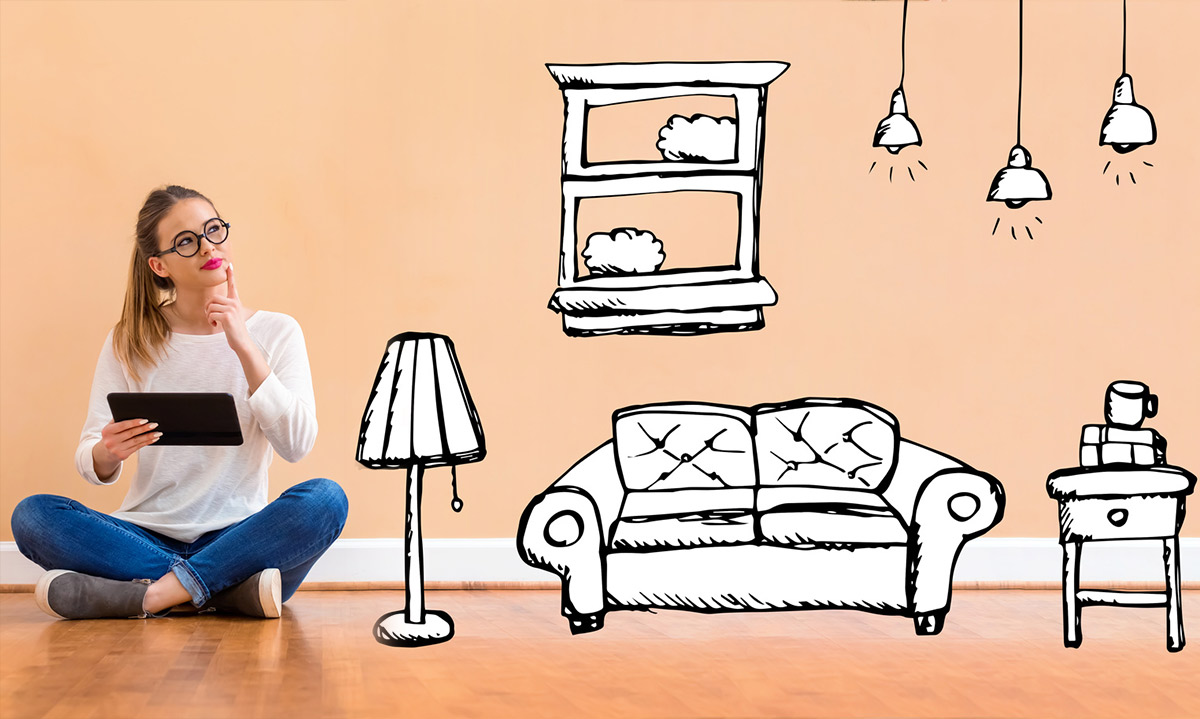
As with any aspect of house buying, there is no one-size-fits-all solutions and finding the right type of property will depend on many variables, including your age, marital/family status, budget, lifestyle, job and lots more besides!
If you have children for example and you're seeking relaxed village life for your family and are keen that the kids can spend as much time as possible playing safely outdoors, then it stands to reason that your requirements for a property will be very different to a young, single professional who's keen to live close to the action in a city centre.
Here are some of the most popular types of property available in the UK, along with a breakdown of their pros and cons.
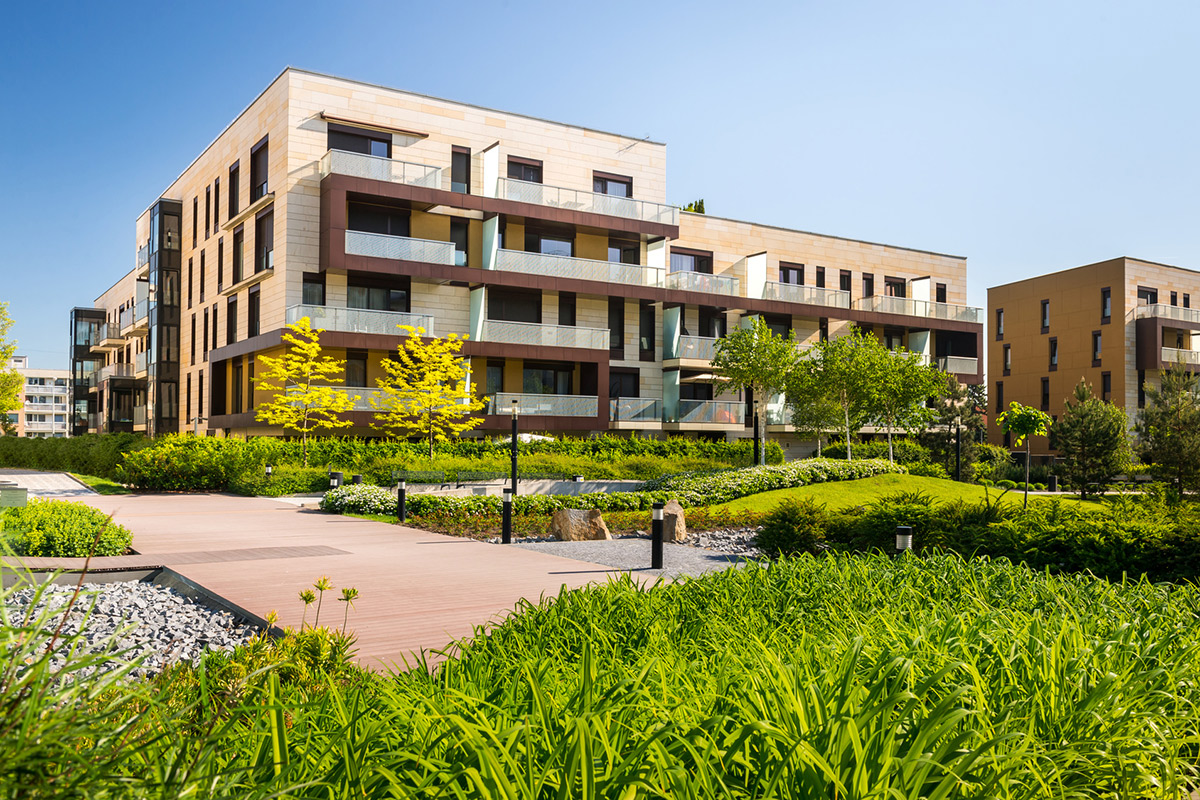
Flats & Apartments
A flat or apartment is a unit of self-contained housing within a larger block of apartments that you do not own. Often seen as a go-to choice for first-time buyers and urban professionals, flats and apartments are usually preferred by buyers who do not require huge amounts of space and are more interested in securing an affordable living space in a lively location.
Apartments are usually compact, which is a key reason why property developers rely on them as the main way of providing living space in dense urban or suburban areas, where the cost of land is high.
This makes them ideal for those who want to live in or close to a city centre, rather than having to commute long distances. Their small size is seen as a plus by many homeowners, which means bills are generally lower, a small space is easier to take care of maintain, they take less fuel to heat and they also command much lower council tax bills than a house.
Anyone buying a flat will need to be comfortable with the idea that they will never own the land underneath the property, meaning they will need to pay ground rent to a landlord or freeholder, and accept certain limitations on the amount of changes they can make to the property. Additionally, the closely-packed nature of flats means that noise pollution and privacy issues may arise, while parking spaces may also be harder to come by.
Nevertheless, the location-based advantages of flats and apartments are hard to replicate with any other property type, and many people prefer to be able to delegate responsibility for external maintenance and repairs to the freeholder.
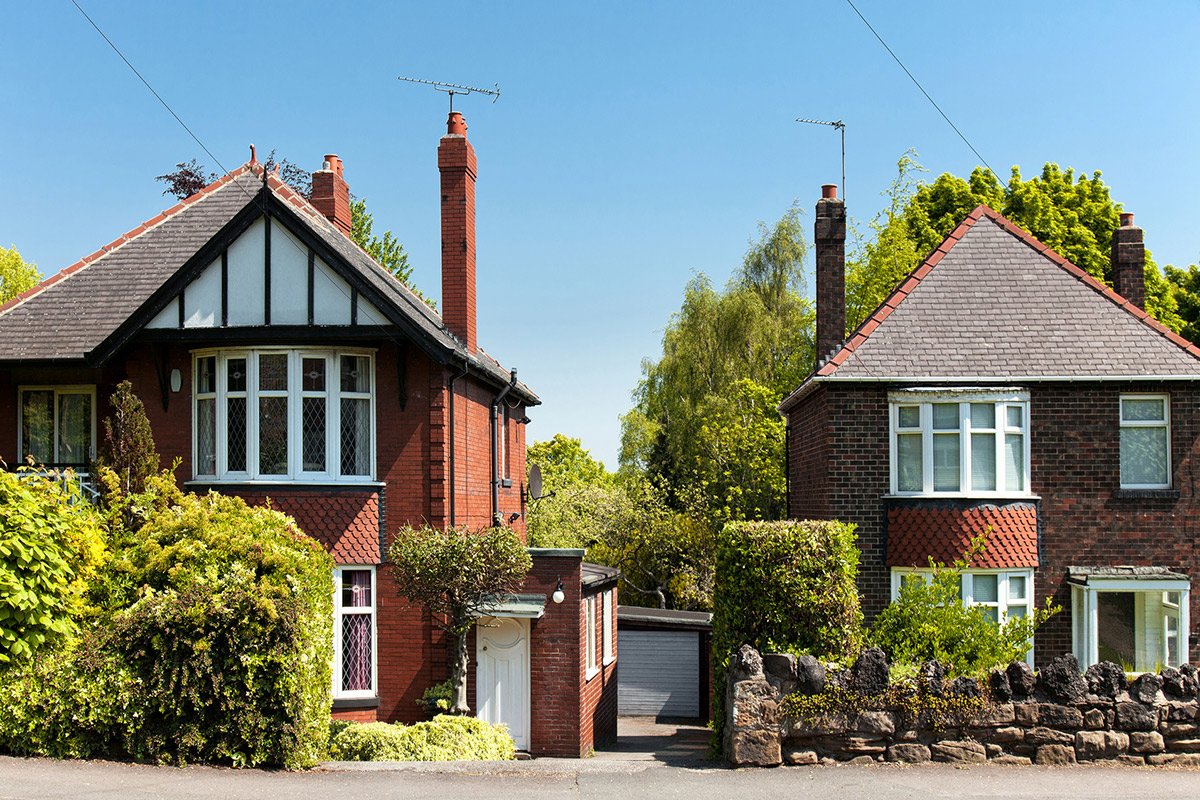
Detached Houses
Detached homes are free-standing properties that are not connected to any other buildings, meaning they can take any shape or size, and therefore offer homeowners a great degree of flexibility and privacy.
With no directly connected neighbours and plenty of space within the designated lot, detached homes are often large and easy to extend or renovate. Whether you want to add a garage, a bigger garden or a whole new extension, owners of detached houses will usually be able to do so with appropriate planning permission.
Detached houses also provide generous amounts of space and privacy, making them ideal for people with large families.
It is worth remembering that these benefits usually come with a large price tag, and as such detached houses are usually much more expensive to buy than any other type of home.
You will also need to pay for upkeep of the entire plot of land and any work you want to carry out, while also factoring in the higher cost of utility bills as well as higher council tax.
For those who can afford to buy and maintain a detached home, however, the benefits are usually well worth it, with space, privacy and no noisy neighbours to worry about!
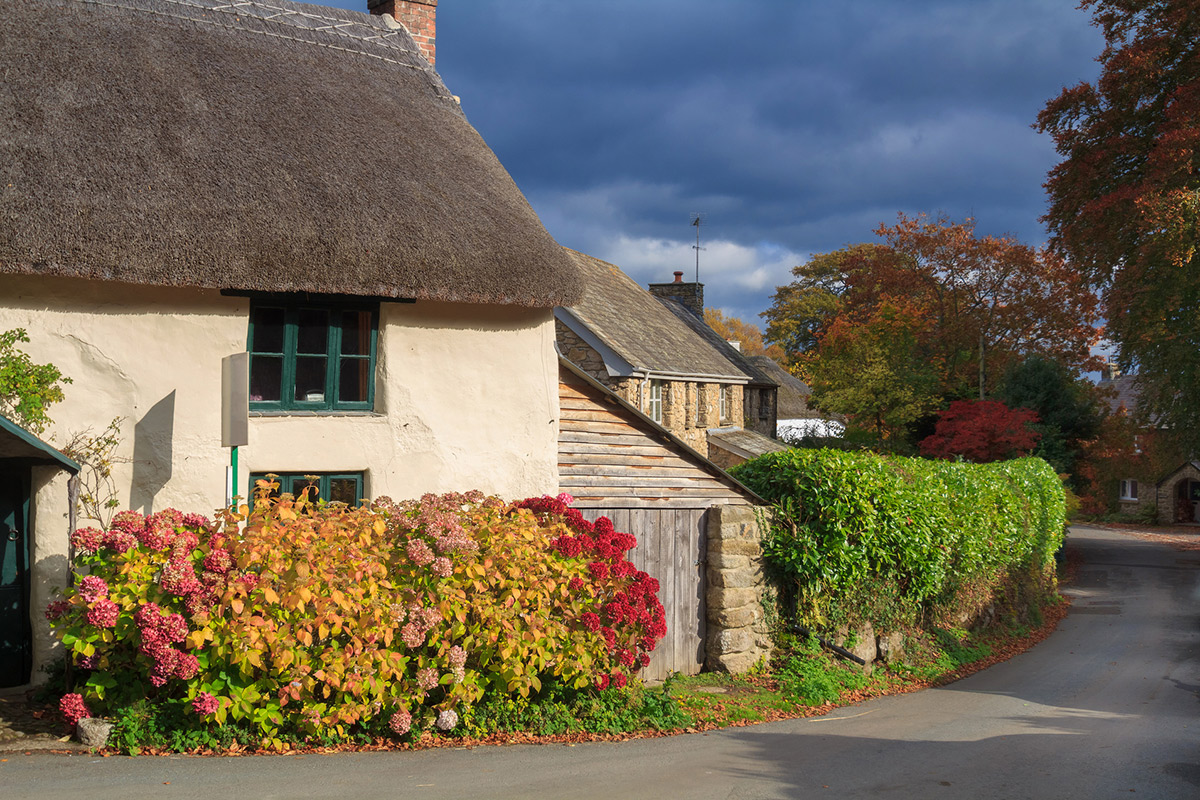
Cottages
Cottages are the picture postcard style of property that ooze countryside charm as they are often found in rural locations. Cottages are generally detached, but semi-detached cottages aren't unusual.
Packed full of quirky period features, you're likely to find thickly insulated walls, timber pillars, low ceilings and in some cases even thatched roofs. They are much sought-after for their quintessentially English aesthetic, some of which will be listed.
Cottages are generally less adaptable than other types of detached property, as their traditional design makes them difficult to revise without disrupting the distinctive qualities of the property. This, combined with their high price tag and countryside locations, usually means they appeal most to buyers who are specifically looking for a more traditional way of living.
The quirky layouts, low ceilings and the listed status of some cottages however can mean they are expensive to maintain and awkward to live in.
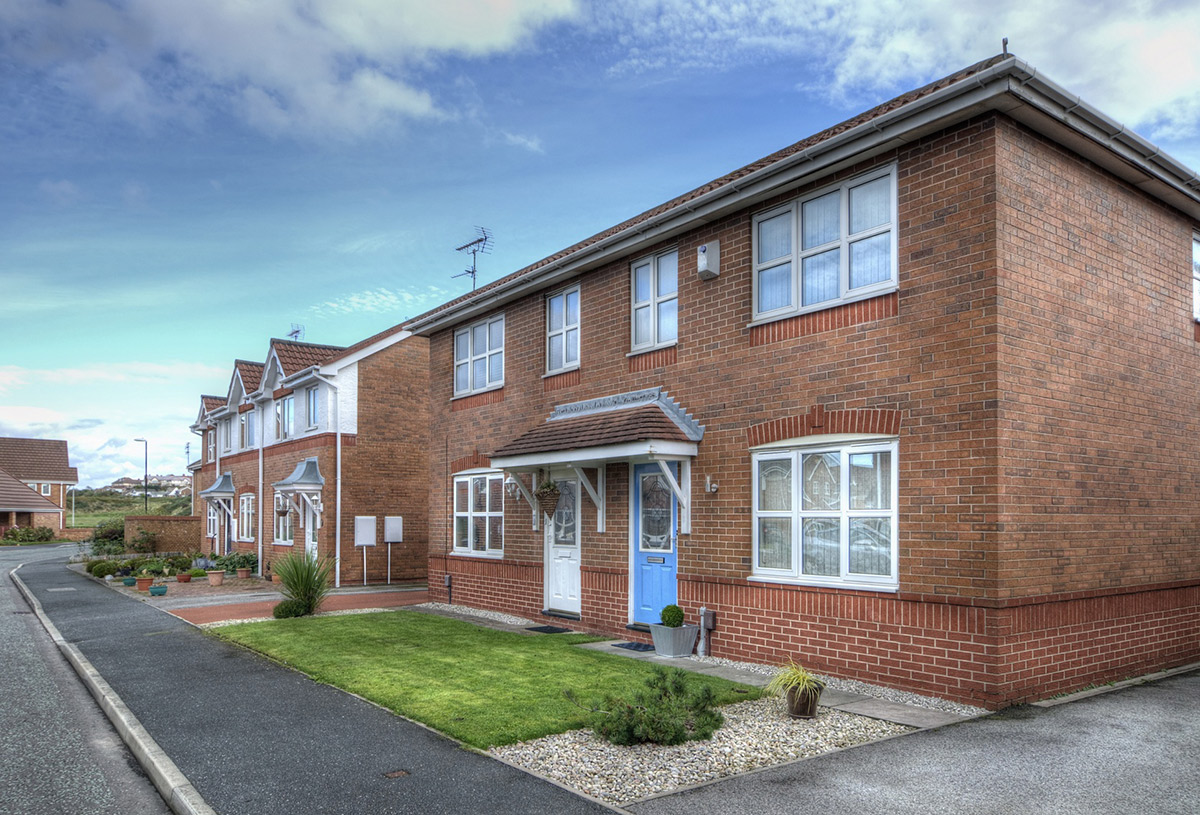
Semi-detached Houses
As the name suggests, semi-detached properties consist of a free-standing pair of housing units connected by a shared wall, with each home built to mirror the other. They offer many of the same benefits as detached homes, but at a more affordable price point.
With a semi-detached house, you can enjoy plenty of space and privacy thanks to only having one direct neighbour. What’s more, having one side of the building insulated by another house reduces heating bills, meaning the affordability benefits they offer compared to detached homes are potentially long-lasting.
Inevitably, having another property connected to yours comes with certain trade-offs - noise disturbances remain a risk, and any extensions or renovation work you want to undertake will need to be signed off by the occupants of the neighbouring property. Despite this, semi-detached homes still offer much flexibility than terraces or flats in this respect, and this is a key reason why they remain one of the most popular housing options in the UK.
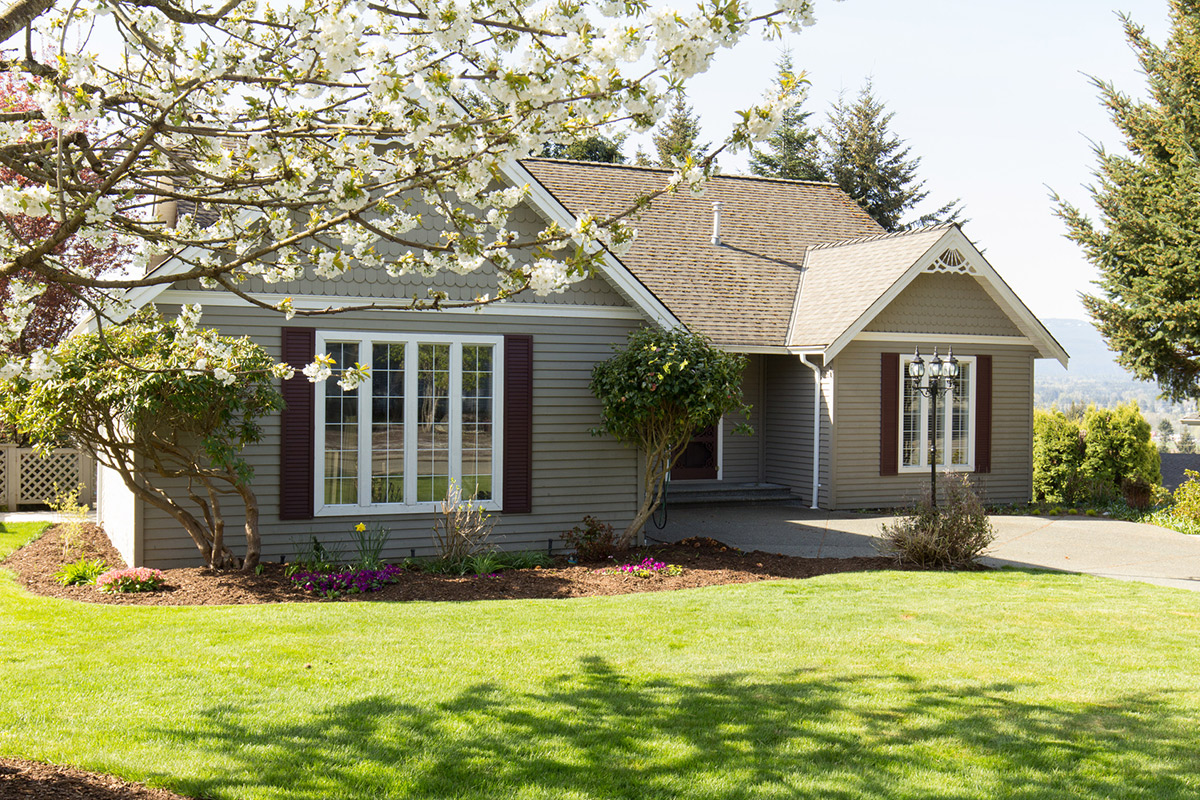
Bungalows
Bungalows are single storey buildings with no staircase and a compact interior design. Due to their lack of stairs, bungalows make a particularly good choice for the elderly or those with mobility issues.
Bungalows are often surprisingly spacious with well-appointed rooms and they are often set on large plots too, making them easy to extend should you wish to. An attic conversion is also common in Bungalows. Dormers can be created to add additional room and space and you might not even require planning permission to do it!
The single-storey design of bungalows won't suit all lifestyles, but bungalows can often provide great value for money.
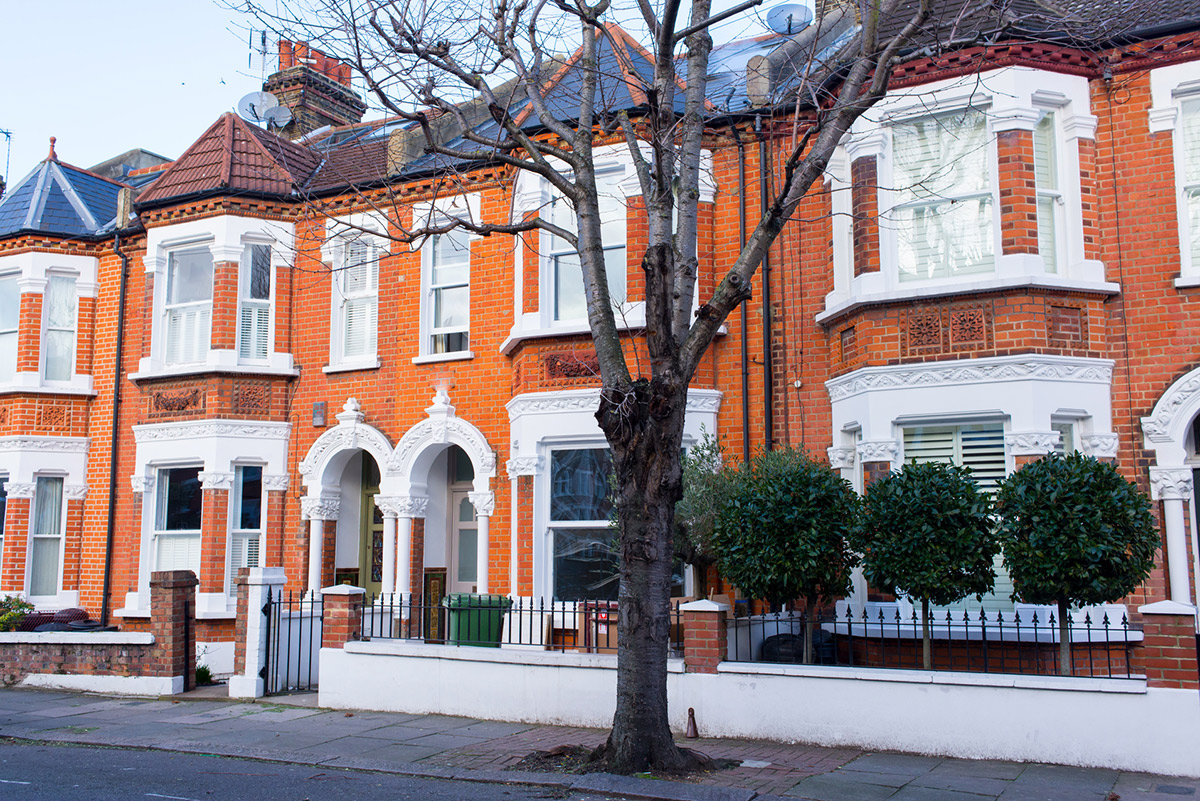
Town Houses & Terraced Homes
Terraced homes are one of the oldest types of housing in the UK and consist of a row of often identical houses built in a long row, with connecting walls. Though small in size, they are one of the most affordable housing options available, with plenty of tempting advantages.
Townhouses are very similar to terraced homes, but properties tend to be newer and larger, typically split across 3 instead of 2 floors, making them a popular choice for first time buyers and young families.
Terraces are often located in good proximity to urban centres, with many modern terraces constructed in gated communities in order to attract aspirational, upwardly-mobile buyers. In addition to the relatively low purchase costs, terraced homes are economical to maintain, due to the insulating quality offered by the shared walls. Additionally, those looking for slightly more privacy and room can opt for a property on the end of the terrace, with only one shared wall.
Terraced homes tend not to be the most spacious, and older style properties in particular can often be very small with layouts that don't really work for a modern house-buying market, some of which still have bathrooms located on the ground floor behind the kitchen, or even outdoor toilets in the garden!
Living so close to your neighbours however can often make for a tight-knit sense of community, something that can be lacking on sprawling modern housing estates.
We'll Get You Moving!
Whatever type of house you choose, we can provide you with the assistance you need to buy and sell your property. Get a quick online conveyancing quote or contact us today by calling 01270 263 263.

